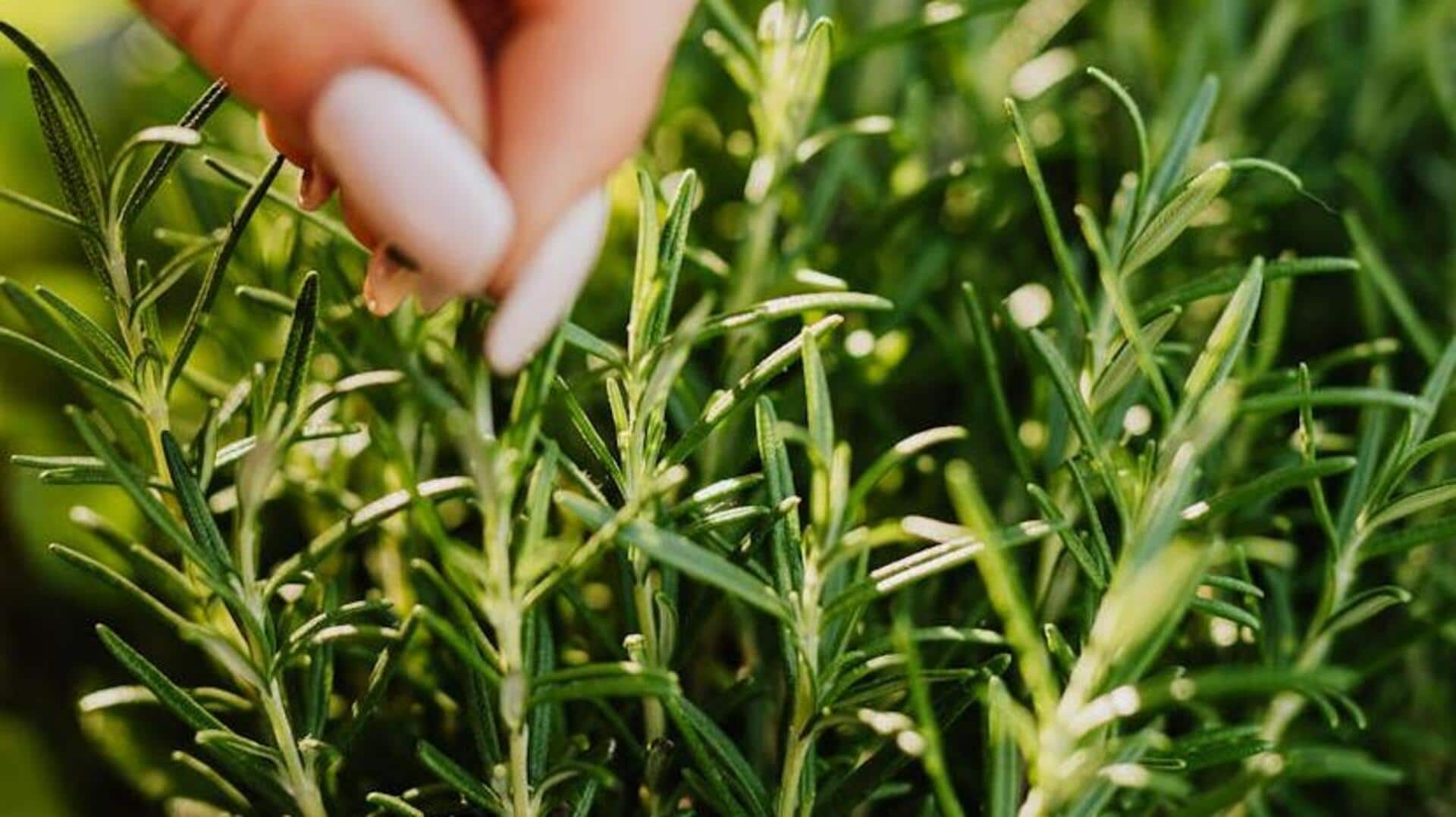
Robust rosemary: 5 aromatic cultivation techniques
What's the story
Rosemary is a perennial herb with fragrant, needle-like leaves and a distinct woody aroma. It's highly prized in culinary arts, aromatherapy, and ornamental gardening. Successful cultivation of rosemary hinges on understanding its Mediterranean roots and meeting its basic needs. This includes ample sunlight, well-draining soil, a careful watering regimen, strategic pruning, and vigilant pest management. Here are five key tips to grow robust and aromatic rosemary plants.
Location
Select the right location
Rosemary prospers in places that get a minimum of six to eight hours of direct sunlight each day. If you're planting rosemary outside, pick a location that isn't blocked by buildings or other plants throughout the day. When growing indoors, position your rosemary near a south-facing window to guarantee it gets sufficient sunlight. Proper light exposure is essential for the plant to produce its distinctive flavor and aroma.
Soil
Ensure proper soil drainage
This herb likes well-drained soil with a pH between six and seven. Heavy clay soils hold too much moisture and can cause root rot in rosemary plants. If you need to improve drainage in heavy soils, mix in some sand or gravel before planting your plant in the ground or pot. For pots, make sure there are plenty of holes in the bottom to let the water out.
Watering
Watering wisely
Rosemary is drought-tolerant once established but needs consistent moisture during its initial growth phase after planting or repotting. Water the plant deeply when the top inch of soil feels dry to touch. However, be careful not to overwater as this can lead to root rot. In general, watering once every one to two weeks is enough, depending on weather conditions and the type of soil.
Pruning
Pruning for health and growth
Regular pruning not only keeps it tidy but also stimulates bushier growth, meaning more leaves for you to harvest! Simply trim back about a third of the growth each year in early spring, just before new growth starts. Plus, deadheading (removing any dead or faded flowers) helps save energy for leaf production instead of seed formation.
Pests
Managing pests naturally
Rosemary is generally quite pest-resistant, but you may occasionally encounter issues with aphids or spider mites, particularly if you're growing rosemary indoors or in very dry conditions outdoors. By releasing beneficial insects such as ladybugs in your garden, you can naturally manage aphid infestations without the need for chemical pesticides, which can be harmful to both your plants and local wildlife.